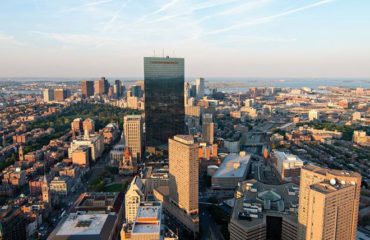The following editorial ran in the Boston Business Journal November 29, 2019.

Our very successful local commercial real estate companies are those “supporting” players and the myriad of proposed fees, obligations and regulations are piling onto that base, as if there could be no unwanted consequences. This industry, over the last ten years has contributed record amounts of real estate taxes to our municipalities, produced thousands of units of market rate and affordable housing, and provided space to accommodate the nearly 500,000 new employees that work for our expanding businesses.
As everyone fears, we are probably edging closer to the end of this record expansion. The risks of development with record high land prices and construction costs are greater than ever. Fewer rental apartments are being proposed in downtown Boston, with condominium development the only financially feasible approach for now. Commercial rents are rising to record levels which might not be sustainable.
At a critical time in the economy, we are seeing many governmental proposals that will certainly increase the costs for development. With tighter financial proformas, the cumulative effect of all these fees and regulations may hasten the end of this economic cycle and make it more challenging to recover, when the market returns.
This is not to say that the aims of these new fees, restrictions, obligations, and regulations are not laudatory; it is just that no one is considering the unintended consequences of them all happening at the same time.
Some of the culprits are:
- The possible return of rent control, a regulation that put a deep chill on the real estate market in the 70s, leading to a period of low housing production, a drop in building maintenance, and an environment that did not even benefit lower income earners.
- Inclusionary Zoning with higher affordable housing requirements, substantially increasing the cost to develop.
- Boston’s Linkage payments with more frequent increases, and, potentially, with no upper limits.
- Aggressive Zero Carbon targets, using prohibitions on the use of fossil fuels, while the electric grid still relies on those same fuels.
- Energy code changes pressing for greater efficiency and alternative energy sourcing with increasing standards every three years and accelerated requirements for stretch code communities.
- Boston Wetlands ordinance adding fees to pay for stormwater and resiliency.
- State Transfer Tax increases with five legislative proposals to fund a list of priorities.
- Although not currently on any agenda, New York City just adopted a flawed ordinance targeting building emissions from commercial properties and potentially costing those commercial markets billions of dollars annually. Hopefully, that punitive proposal does not migrate here.
We are the envy of most states with a healthy and productive “Golden Goose” of an industry. But, there are those that believe that the revenues are not sufficient and that more can be squeezed out of this treasure, risking killing it. Let’s just be more judicious about all we are asking of this industry at a time when it could easily turn cold. As the moral of the story goes: “those who have plenty want more and so lose all they have”.


